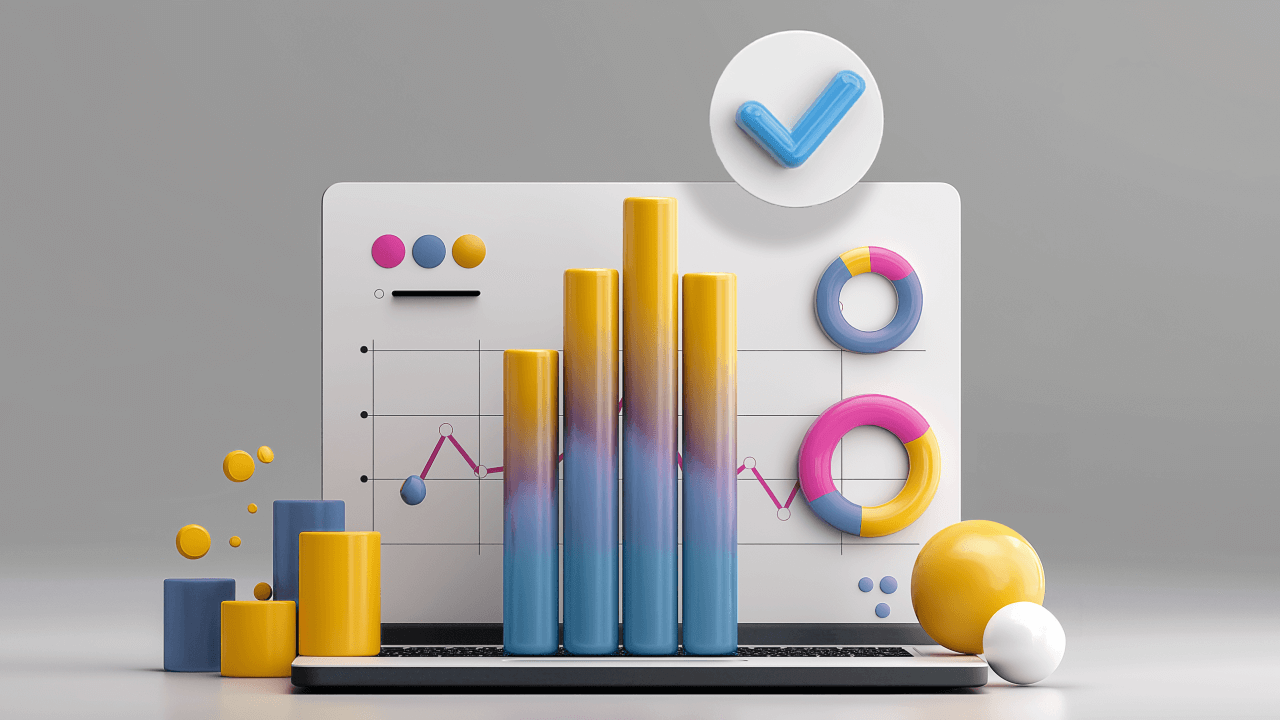Work in these industries? Why you need to use BI dashboard tools

Every industry in today’s market makes use of data in some way, whether it be to track production numbers or predict consumer trends. In order to make the most informed decisions possible, businesses need to be able to access and interpret this data quickly and easily. This is where business intelligence (BI) dashboard tools can play an integral role.
BI dashboard tools allow businesses to collect data from a variety of sources and present it in a visual format. This makes it easier for business leaders to see patterns and trends and make more informed decisions based on this information.
Many different BI dashboard tools are available on the market, each with their own unique set of features. However, not all of these tools are equal. To ensure that you’re getting the most out of your data, it’s crucial to choose a tool that’s well-suited to your specific industry.
Healthcare, finance, and manufacturing are just a few of the industries that can benefit from using BI dashboard tools. If you work in one of these industries, read on to learn more about how BI dashboard tools can help you in your job.
What are BI dashboard tools?
BI dashboard tools are software applications that help businesses collect, interpret, and visualize data. Dashboards provide users with a clear overview of all the most critical information and allow businesses to make more informed decisions about their strategies and operations.
Dashboards offer a variety of unique features that enable you to make use of your data in new and innovative ways.
For example, some dashboard tools allow you to share your dashboard with other users so that they can view and interact with your data. This is a great way to collaborate on projects and make sure that everyone is on the same page.
How do BI dashboard tools work?
BI dashboards are built using a variety of different data sources, including transactional data, social media data, and web analytics data. This data is then organized into visualizations such as charts and graphs, which make it easier to understand and interpret.
BI tools enable users to collect, clean, and transform data from a variety of sources so that it can be used to create dashboard visualizations. This process is known as “data wrangling” and is a key part of working with dashboard tools.
The benefits of using BI dashboard tools
There are many benefits to using dashboard tools, including the following:
Improved decision-making
Dashboards provide users with a clear overview of all the most important information, making it easier to identify patterns and trends. This helps businesses to make more informed decisions about their strategies and operations.
Improved productivity
By making it easier to access and interpret data, dashboard tools can help businesses improve their overall productivity.
Improved collaboration
Some dashboard tools offer features that allow users to share their dashboard with other users. This is a great way to collaborate on projects and make sure that everyone is on the same page.
Now that we’ve covered some of the basics of BI dashboard tools, let’s take a closer look at how they can be used in specific industries.

Healthcare
The healthcare industry has continued to be a primary adopter of dashboard technology. Healthcare organizations use dashboard tools to track a variety of different metrics, including patient data, medical supplies, and staff productivity.
BI dashboard tools can help with managing patient data
Managing patient data is a critical part of providing quality healthcare. Dashboard tools can help healthcare organizations track and manage patient data more effectively.
For example, dashboard tools can be used to track a patient’s medical history, medication usage, and lab results. This information can then be used to identify patterns and trends that may indicate a need for additional care.
BI dashboard tools can help with tracking medical supplies
Another important function of dashboard tools in the healthcare industry is tracking medical supplies. This is important because it helps to ensure that patients have access to the medications and treatments they need.
Dashboard tools can help healthcare organizations track medical supplies in real time so that they can be reordered as needed. This helps to ensure that patients always have access to the medications and treatments they need.
BI dashboard tools can help with tracking staff productivity
Dashboard tools can also be used to track staff productivity in the healthcare industry. This is important because it helps to ensure that staff are working effectively and efficiently.
For example, dashboard tools can be used to track the number of patients seen by a doctor, the length of time each patient spends in the doctor’s office, and the number of prescriptions written by the doctor. This information can then be used to identify patterns and trends that may indicate a need for additional training or resources.
Finance
The finance industry has also been a major beneficiary of dashboard technology. Dashboard tools are used in finance to track a variety of different metrics, including stock prices and metrics conveying company performance.
Within the finance industry, dashboard tools are used to improve decision-making, collaboration, and productivity.
BI dashboard tools can help with monitoring stock prices
Stock prices are a critical metric in the finance industry. Dashboard tools can help finance professionals track stock prices in real time, so that they can make more informed decisions about their investment strategies.
BI dashboard tools can help with building financial reports
Another important metric in the finance industry is financial reports. Dashboard tools can help finance professionals create financial reports by building visualizations that can be incorporated into reports.
BI dashboard tools can help with tracking company performance
In addition to tracking stock prices and building financial reports, dashboard tools can also be used to track company performance. This is important because it helps investors identify potential investments.
For example, dashboard tools can be used to track a company’s sales, profits, and expenses. This information can then be used to identify patterns and trends that may indicate a need for additional investment.

Manufacturing
A third industry that has been a major adopter of dashboard technology is manufacturing. Dashboard tools are used in manufacturing to track a variety of different metrics, including production data, quality control data, and employee productivity.
Within the manufacturing industry, dashboard tools are used to improve decision-making, collaboration, and productivity. For example, dashboard tools can be used to track production data. This information can then be shared with other users, so that everyone is on the same page.
BI dashboard tools can help with tracking production data
Some of the most important metrics in the manufacturing industry are those that have to do with production data. Manufacturing professionals can use dashboard tools to track production data in real time so that they can identify patterns and make sure they’re on track to meet production goals.
BI dashboard tools can help with tracking quality control data
Another important metric in the manufacturing industry is quality control data. Dashboard tools can help manufacturing professionals track quality control data in real time so that they can identify patterns and take measures to improve the quality of products.
BI dashboard tools can help with tracking employee productivity
In addition to tracking production data and quality control data, dashboard tools can also be used to track employee productivity. This is important because it helps managers identify potential problems and address them quickly.
For example, dashboard tools can be used to track the number of products that an employee produces per hour. This information can then be used to identify patterns and trends that may indicate a need for additional training or supervision.
Take advantage of BI dashboard tools in your workplace today
No matter what industry you work in, chances are that you can take advantage of dashboard tools to improve your job performance.
Dashboard tools offer a variety of benefits, including the ability to track critical data, share information with other users, and make more informed decisions. If you want to stay ahead of the curve, it’s time to start using dashboard tools in your job.
Domo transforms the way these companies manage business.








